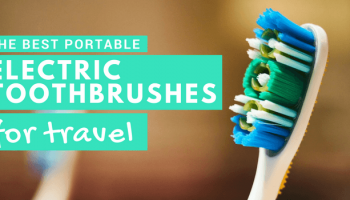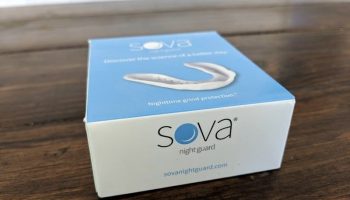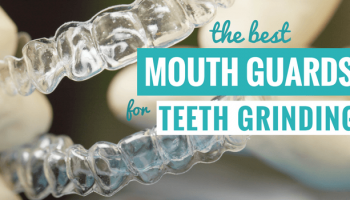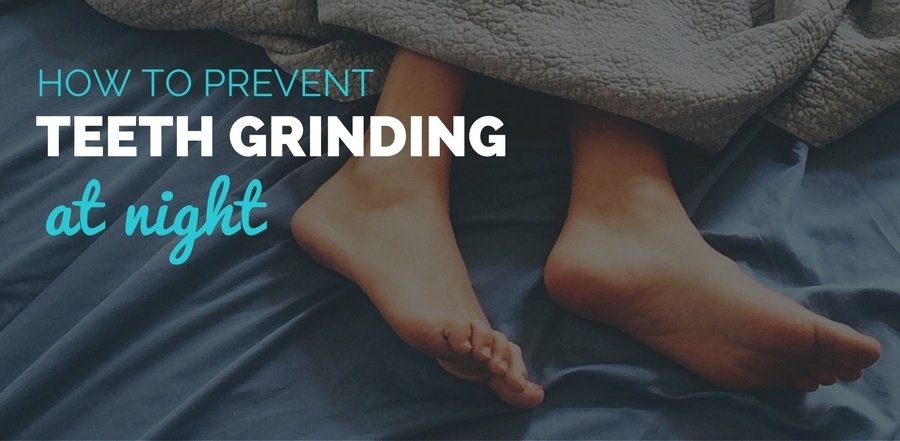
Have you ever woken up after a supposedly good night’s sleep with your teeth and jaws feeling sore? If you have, then there’s a huge chance that you grind your teeth at night.
The condition, which is known as bruxism, is the involuntary clenching of the jaws and grinding of the teeth. It affects both children and adults. Although it usually occurs when you’re asleep, it’s also possible for you to grind your teeth while awake, especially when you’re intensely focused and concentrating on a particular task.
Why Do I Grind My Teeth While Sleeping?
Why teeth grinding during sleep occurs has remained a mystery amongst doctors and dental care professionals for many years.
Many believe that teeth grinding is caused by stressed, but this theory doesn’t exactly explain why there are cases of fetus in utero grinding their teeth. Even some children grind their teeth at night, despite living largely stress-free lives.
The latest research may hold new answers – new studies seem to show that teeth grinding may actually be an instinctual response that helps us survive.
You see, our brain cycles through the lighter and deeper stages of sleep at night. The closer the brain is to approaching deep sleep, the more relaxed the muscles in our body become. This causes the jaws to become heavier than normal, possibly causing blockage of the airway. The tongue too expands to nearly twice its normal size, causing additional blockage as well.
By studying brain scans of people who were sleeping and had a partial blockage in their airways, researchers noticed that it was grinding, or bruxism, that helped reopen the airway and allowed for normal breathing again.
Furthermore, as soon as the participants were given oral appliances that helped keep their airway open throughout their sleep, such as a CPAP machine, the grinding stopped, and they were able to breathe properly throughout their sleep.
The Dangers of Grinding Teeth In Sleep
If grinding is technically what saves some of us, what exactly makes it so dangerous?
- Constant Sleep Arousal. You probably already know how important sleep is to you and your well-being.
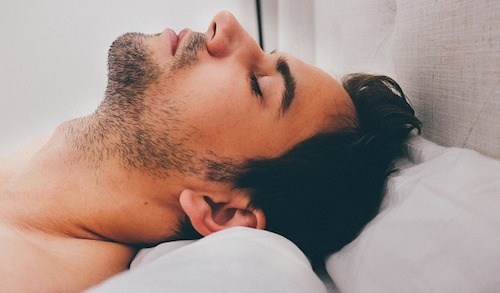
The number of hours slept isn’t the only thing that’s important either – so too is the soundness and quality of your sleep. If you constantly grind your teeth at night, your sleep is much more likely to be interrupted in the middle of the night, or constant sleep arousal.
If you consistently don’t get the eight full hours of quality sleep your body needs at night, you miss out on the many benefits of deep sleep. This includes increased metabolism, memory improvement and a significantly lowered risk for a number of life-threatening complications such as heart disease, stroke, depression and anxiety, among many other things.
- Damage to Teeth and Jaws. Many years of teeth grinding can eventually damage your teeth, causing a number of dental and oral problems. This includes tooth decay, tooth sensitivity, and possibly permanent damage to the jaw point, as well as pain in the jaw.
How To Know If You’re Grinding Your Teeth As You Sleep
Of course, since you can’t exactly find out if you grind your teeth while you’re asleep unless your dentist tells you, there are a few signs and symptoms that you can take note of when trying to asses yourself.
This includes keeping an eye out for:
- Unusual wear and tear on your teeth
- Teeth that are visibly worn flat
- Sore jaw muscles and jaw pain when you wake up
- A jaw that clicks whenever you open or close your mouth, such as when chewing or talking.
It would also be a good idea to ask your sleep partner, as he or she may have noticed the annoying “squeaky” noise made by the constant grinding of your teeth at night.
Treatment for Grinding Teeth In Sleep
Not treating nightly teeth grinding is only going to make things worse for your dental health, as well as your overall health. To treat night bruxism, it is recommended that you:
- Talk to Your Dentist. Your dentist can give you a comprehensive exam and alert you to any signs of teeth grinding. Also, in cases where bruxism has affected your oral health, your dentist can develop a treatment that can help manage or minimize the effects of bruxism on your teeth and future oral health.
- Get a Sleep Study. You may want to consider a sleep study to get a full diagnosis from a sleep specialist for sleep apnea, as well as other possible conditions that you may be suffering from.
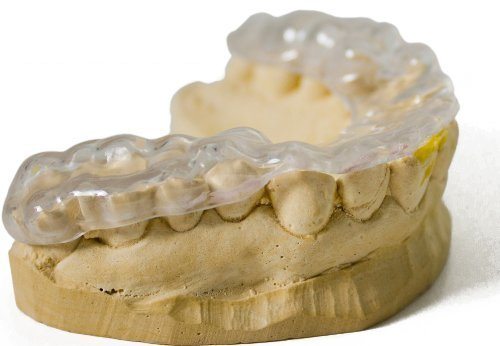 Order A Custom Night Guard. Additionally, you can ask your dentist for a night guard (or order a custom night guard yourself for much less money).
Order A Custom Night Guard. Additionally, you can ask your dentist for a night guard (or order a custom night guard yourself for much less money).
These custom-made plastic mouthpieces are made to fit over your top or bottom teeth and are worn at night, before going to sleep.
Night guards are considered the treatment of choice for bruxism as they help reduce jaw muscle pain, and provide protection for your teeth, as well as your temporomandibular joint.
Other mandibular advancement devices may also be used. These devices are different from night guards and are typically worn over both your top and bottom teeth to help bring your bottom jaw forward. This then helps keep the airways open and minimizes obstructions. This is considered as the preferred treatment if your bruxism is caused by sleep apnea.
- Manage Your Stress. Stress and anxiety have either been known to cause bruxism, or at least, aggravate its symptoms. Regardless, learning how to manage and deal with stress and anxiety, such as through meditation or psychoanalysis, can have positive effects on bruxism, as well as your quality of life.
There’s no single definitive solution to putting an end to the constant grinding and clenching of your teeth. Doing so requires a combination of getting a complete oral evaluation by your dentist, or oral surgeon, and following the properly prescribed treatment plan. It may also include getting a sleep study, wearing a dental night guard designed to stop teeth grinding, and quite possibly, making a few necessary lifestyle changes.
As much of a hassle as that may sound, your oral health, and quite possibly your larger overall health, is worth the investment that the treatment of bruxism requires.

